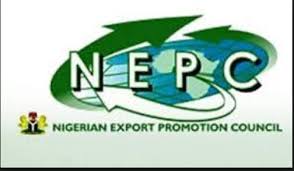By Dikachi Franklin, in Owerri
Scores of exporters, potential exporters, the Nigeria Customs Service, representatives of the Federal Inland Revenue Service (FIRS), among others, attended a one-day workshop on penetration strategy into the international market, held at the event hall of the Nigerian Television Authority (NTA) Channel 12, Owerri, Imo State.
 The workshop, which was aimed at promoting Nigerian non-oil exports, provided information on what budding exporters should know and do when engaging in exports.
The workshop, which was aimed at promoting Nigerian non-oil exports, provided information on what budding exporters should know and do when engaging in exports.
Organisers said the workshop followed findings showing that a lot of registered exporters, as well as the business community, are at a loss on the processes and procedures involved in carrying their products outside the shores of Nigeria .
The workshop was put together by the Ngerian Export Promotion Council (NEPC), an agency of the federal government saddled with the responsibility of developing and promoting the non-oil export goods in the country.
Felicia Agbahia, trade promotion advisor at NEPC, Owerri Export Assistance Office, stated that the strategy for the diversification of the economy from oil, which is the core mandate of NEPC, is not only product based but also included market development.
According to the trade advisor, the workshop came at a time when the country was faced with declining foreign reserves, consequently putting pressure on the country's local currency, the naira, hence the need to earn huge amounts of foreign exchange through export of goods.
Chinyere Njoku, who represented the Federal Inland Revenue Service (FIRS), Imo and Anambra Coordination office, and spoke on, “The tax regime for exporting companies in Nigeria: Small and medium enterprises”, informed that tax is any compulsory payment to government imposed by law without direct benefit or return of value or a service whether it is called a tax or not.
On the need to file self- assessment returns, she said, “Section 55 of CITA C21 of LFN as amended, provides that every company (including companies granted exemption from incorporation in Nigeria and those not liable to tax under (CITA) shall file self- assessment returns”.
She went further to state that a small sized company is taxed at zero percent according to section 23(1) (0) while a medium sized company is taxed at 20 percent .
In her further explanations to broaden the minds of the entrepreneurs, she explained that, “Section 77 of CITA states that where a company pays its tax 90 days before the due date as provided under section 55, it shall be entitled to a bonus of two percent for medium sized company on the amount of tax paid, which shall be available as a credit against its future taxes".
Moreover, a small company, she disclosed, is a company that earns gross turnover of N25 million or less annually while a medium sized company means a company that earns gross turnover greater than N25 million but less than N100 million annually .
Chinyere Njoku explained that for companies manufacturing for export, where money was borrowed for export business, section 11(10) CITA, the interest payable on loan granted by a bank on or after 1st April 1980 for the purpose of manufacturing goods for export is exempt from income tax.
Meanwhile, a seasoned technocrat, a lawyer and immediate former commissioner for commerce and industry, Kingsley Onunuju, in an interview with Business A.M. noted that the business of non-oil exports is critical to the economic survival of the country and commended NEPC for the workshop even as he advised that all should embrace the business of exporting to African countries.
He suggested that exporters should be thoroughly furnished with the rules and regulations, and every knowledge about export business.
He advised those in the business of exporting agricultural produce to package them well and export to African countries, saying that Africa is the biggest market in the world today.